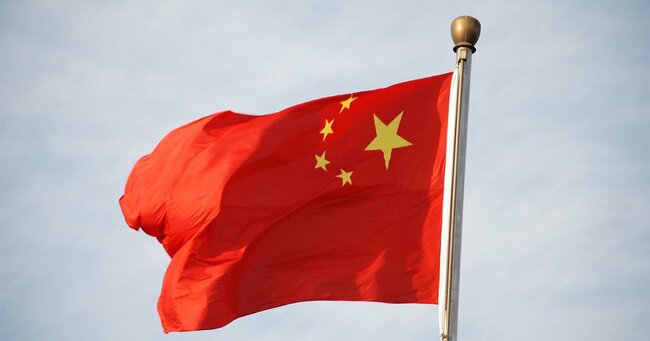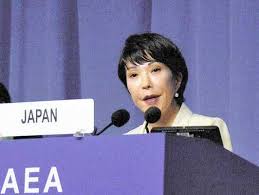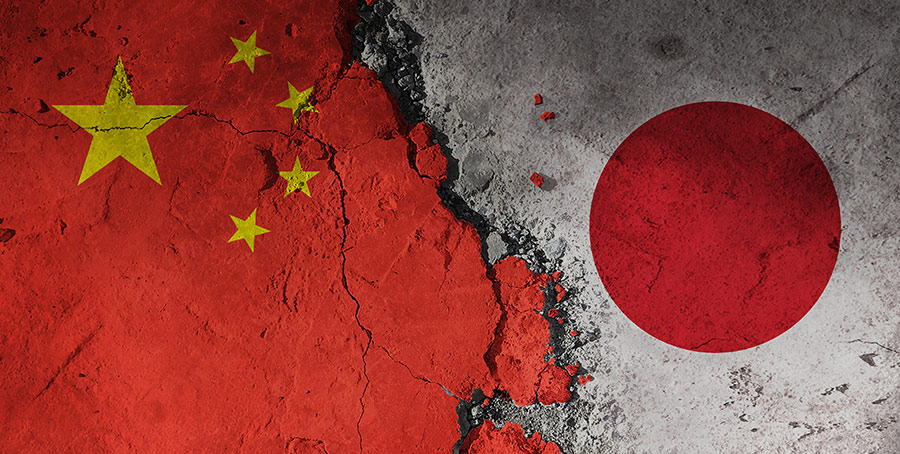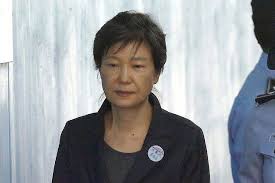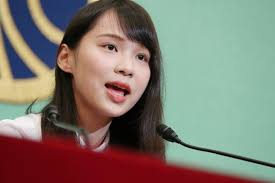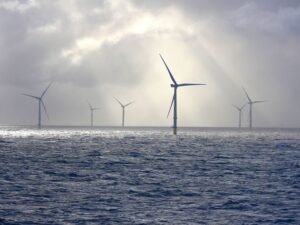At the IAEA (International Atomic Energy Agency) General Conference held in Vienna, Austria, Science and Technology Minister Takaichi firmly refuted China’s criticism of the release of ALPS treated water from the Fukushima Daiichi Nuclear Power Plant. BS Fuji Live’s “Prime News” welcomed Minister of Science and Technology Takaichi and Yoshiko Sakurai for an in-depth discussion on how to respond to China, which is using the treated water issue as a new anti-Japan attack card.
IAEA’s Response to China: What Happened Behind the Scenes
Yuka Niimi is the anchor of this program:
The IAEA’s annual meeting was held in Vienna, Austria, September 25-30. 177 countries are members of the IAEA as of August 2023, which is an international organization for the peaceful use of nuclear energy and the prevention of its diversion to military use. What was the purpose of your attendance?
Sanae Takaichi, Minister of Science and Technology, and Minister of Economy and Security:
The main purpose is to disseminate information on the ocean discharge of ALPS treated water from the Fukushima Daiichi Nuclear Power Plant, which began on August 24. The point is that Japan’s efforts are in line with relevant international safety standards. The point is that Japan’s efforts meet the relevant international safety standards, and that the radiation effects on humans and the environment are negligible. And that the IAEA has continued monitoring after the release and the results have been promptly published, confirming its safety. Secondly, criticism of North Korea’s use of nuclear power for military purposes, contrary to the IAEA’s objectives. Also, criticism in the strongest terms of Russia’s very dangerous actions around nuclear power plants in Ukraine.
Niimi Yuka, anchor:
China is the sixth of 12 countries to speak, and Japan is the tenth. China was the first to criticize the discharge of treated water into the ocean, and Mr. Takaichi responded to the criticisms. First, Liu Jing, deputy director of China’s National Nuclear Reactor Organization, said, “Japan has pushed ahead with the ocean discharge without regard to strong opposition from the international community. The discharge of Fukushima nuclear contaminated water into the ocean is a serious problem. The IAEA should strictly monitor Japan. Minister Takaichi said, “China has made statements that have no scientific basis, but China is the only member of the IAEA that is sending out statements that are not based on facts and has taken prominent measures to restrict imports. We will continue to demand actions based on scientific evidence and the accurate dissemination of information.
Sanae Takaichi, Minister of Science and Technology, Minister of Economy and Security:
According to information before our departure, China’s speech order was later than that of Japan. So instead of criticizing China by name, I went over criticism of North Korea and Russia and the safety of treated water. However, when I received information locally that China might be first, I had to envision a counterargument in my mind. I was glad that I was the 10th speaker. I could listen to the Chinese speech, which was translated into English, from the seat of the Japanese representative. China used the term “nuclear contaminated water” and made the terrible mistake of saying that the surrounding countries were also opposed to it.
Yoshiko Sakurai, President of the Institute for National and Fundamental Studies:
The Chinese side’s statement was in Chinese and completely for the domestic market. Mr. Koichi refuted in English, and I was very impressed. He really said it well.
Mr. Sanae Takaichi, Minister of Science and Technology, Minister of Economy and Security:
I am sorry for my poor English, thank you very much. What really annoys me is that you included international experts to compile the IAEA’s July summary report. The Chinese and Russians were also included, and they themselves participated in the preparation of the report, which stated that there was little impact on people or the environment, and I wondered why they said that. That was the most upsetting thing for me.
Yoshiko Sakurai, President of the Institute for National Fundamental Studies:
China is that kind of country. China is the one that is deteriorating the environment of the entire planet with mercury, nitrogen dioxide, garbage in the Sea of Japan, and so on. You say that without any consideration at all. We have to be careful about the way China is talking.
Sanae Takaichi, Minister of Science and Technology, Minister of Economy and Security:
As a result, after China’s speech, 14 countries and regions gave speeches in support of Japan and the IAEA’s efforts. I think China’s isolation was outstanding. After the speeches, the Japanese booth was overflowing with people who came for Fukushima fish sushi and Fukushima sake. Many people understood and supported us.
The Chinese delegation that met at the airport was “mensch” to Minister Koichi.
Caster Yuka Niimi:
After Minister Takaichi left, the exchange between Ambassador Hikihara and the Chinese side continued. Liu Jing, deputy director of the Chinese delegation, said, “Japan claims that the nuclear contaminated water meets the standard and can be discharged, but we cannot scientifically evaluate the discharge for more than 30 years. Ambassador Hikihara said, “Japan is not releasing contaminated water but ALPS processed water. It is unfortunate that we are still using the wrong term,” he said. “The amount of tritium released from a nuclear power plant in China in one year is five to ten times the amount released from the Fukushima Daiichi Nuclear Power Plant,” he countered.
Yoshiko Sakurai, President of the Institute for National and Fundamental Studies:
Japan sets the maximum value at about 22 trillion becquerels a year, but it actually emits about half of that. Based on that, China’s level is about 40 times higher. 5 to 10 times is a suppressed figure.
Sorimachi Osamu, anchor:
Was the point this time to make the other party’s misconceptions about the facts?
Sanae Takaichi, Minister of Science and Technology, Minister of Economy and Security:
I didn’t expect them to say something like that, but if they say something, we have to say it back. China knows what it is saying about treated water and IAEA monitoring.
Caster Osamu Sorimachi:
A viewer said, “I agree with your brilliant response. He added, ‘You really know what you are saying, but you are saying it from your position. You should have shown some pity for him. As one might expect, he could not say that on the spot.
Sanae Takaichi, Minister of Science and Technology, Minister of Economy and Security:
On my way back to Frankfurt, I bumped into the Chinese delegation in the waiting lounge during my connection. I have poor eyesight, but according to Mr. SP, the other party looked up something on their phone, compared it to my face, and were quite “mensch” about it. The other party’s chaperone came after me and handed the SP a business card of a Chinese public security official and said, “I was sold a fight. It was indeed awkward. So I said nothing more than that. I wonder if the other side will lower their raised fist or not in the future.
Ri Sorimachi, anchor:
China is likely to launch an anti-Japanese information war over the next 30 years. How will you deal with it?
Sanae Takaichi, Minister of Science and Technology, Minister of Economy and Security:
This year, Japan holds the G7 chairmanship and has launched a coordination platform against economic intimidation, which was mentioned in the May summit statement. It is important to use the G7 first, because a framework has been established to counter economic intimidation by quickly sharing information, including that of friendly countries. Also, filing a complaint to the WTO. I will not discuss the government’s position, as it is not my jurisdiction, but I personally believe that Japan should file a lawsuit. Japan should firmly demonstrate its stance. In the meantime, Japan should expand its sales channels without having China buy from it.
Mr. Osamu Sorimachi, anchor:
Japan should take the initiative and attack at every international conference, rather than just refuting China’s arguments when they are made.
Sanae Takaichi, Minister of Science and Technology, Minister of Economy and Security:
That is the only way to do it. We should take every opportunity to say so, no matter which ministers appear at international conferences abroad. China is the only country that has blamed Japan by name this time, and we are isolated. We must send out messages more and more.
Yoshiko Sakurai, President, Institute for National and Fundamental Studies:
The Ministry of Foreign Affairs should stop its passive attitude, and in order to protect Japan’s national interests, it should be more proactive in sending out correct information and asserting what needs to be asserted. Japan has been too insistent so far.
Yuka Niimi, anchor:
Japan aims to strengthen its economic and security sectors, mainly in the areas of AI, semiconductors, medicine, advanced information and telecommunications, advanced science, space, ocean, biotechnology, and security clearance. What is the progress?
Sanae Takaichi, Minister of Science and Technology, Minister of Economy and Security:
In addition to those, we have decided on 11 specific critical commodities by government ordinance. We are moving forward with efforts to strengthen Japan’s supply chain. Another is security clearance, which we have been insisting on for a long time. We definitely want to get a draft law passed in next year’s ordinary Diet session. We have made progress with the help of the Council of Experts. This is a matter of national security as well as business opportunities for Japanese companies overseas. In each field, we have designated specific key technologies and the public and private sectors are working together on them. Progress is being made in drones, autonomous unmanned probes, optical communications between satellites, advanced materials technology for aircraft engines, and next-generation storage battery technology.
Osamu Sorimachi is the anchor:
In his appearance when he was running for president, he said he would take care of Japan’s security. Do you think in terms of total packaging that it is necessary to include both the economy and the military?
Sanae Takaichi, Minister of Science and Technology, Minister of Economy and Security:
The promotion of economic security itself is important for the survival of the people and Japan’s economic activities. We are talking about research on such technologies by the public and private sectors under the protection of security clearance, and security clearance is truly important. It is not enough to focus on the four areas of diplomacy, defense, espionage, and terrorism. When we ask private companies to improve security vulnerabilities in the space field or in information and telecommunications, if we do not ask those who have received clearance to do so, it will affect Japan’s national security and we will not be invited to bid on foreign government procurements. Whatever it takes, it must become law.
Yoshiko Sakurai, President of the Institute for National and Fundamental Studies:
Japan today cannot afford to wait a year or any other amount of time. We must do it as soon as possible. I wonder if the prime minister lacks a little sense of crisis.
Mr. Sanae Takaichi, Minister of Science and Technology, Minister of Economy and Security:
However, I interpret his reappointment of me as meaning that I am allowed to carry out the security clearance.
Caster Osamu Sorimachi:
A viewer asked, “What is your motivation for the next presidential election? How are you making friends? Please keep up the good work. There are many others.
Sanae Takaichi, Minister of Science and Technology, Minister of Economy and Security:
Thank you for your encouragement. First, we will finish the security clearance. Then, we will fight again.
(BS Fuji LIVE “Prime News” broadcast on October 3)
